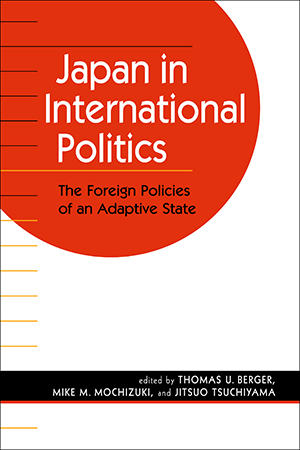
- 2007/349 pages
Japan in International Politics:
The Foreign Policies of an Adaptive State
Hardcover: $59.95
ISBN: 978-1-58826-483-1
Paperback: $24.50
ISBN: 978-1-58826-459-6
How have shifts in both the international environment and domestic politics affected the trajectory of Japanese foreign policy? Does it still make sense to depict Japan as passive and reactive, or have the country's leaders become strategic and proactive? Japan in International Politics presents a nuanced picture of Japanese foreign policy, emphasizing the ways in which slow, adaptive changes, informed by pragmatic liberalism, have served the national interest.
The authors analyze core issues in the arenas of security policy, economic relations, and regional diplomacy. The concluding chapter of the book considers the significance of Japan's current foreign policy posture for its future role in international politics.





